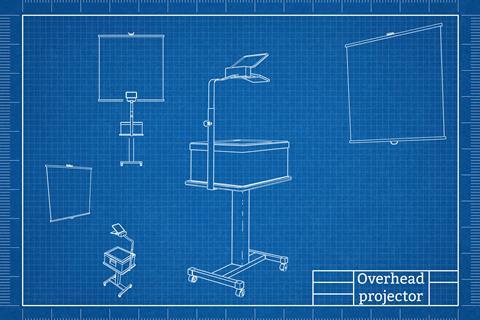From overhead projectors to AI, our new series by former teacher and edtech fan Wendy explores technology through the years and how teachers are using it

I spent the most rewarding part of my 38-year career at the chalk face, teaching chemistry in schools and sixth form colleges. Whether I was performing in science laboratories, prefabricated structures, stationery cupboards or – on one occasion – a converted jukebox factory in Milan, I loved it. I’ve now retired from chemistry teaching, instead train computer experts to teach people who work in artificial intelligence (AI), quantum computing and supercomputing. I’m still avidly following the use of edtech in schools, though, which is why I’m writing these articles for EiC.
AI has to be one of the most talked-about technologies in the field of education today, surely. Are you using it in your school? This new Tech talk series will focus on sharing your stories of how AI and other technologies are making life easier, while improving teaching, learning and assessment.
From OHPs to digitalisation
Over four decades I’ve witnessed dramatic advances in technology and, in this column, I will highlight how I embraced many of them.
Thinking back to when I landed my first job in a state comprehensive in Birkenhead in the mid-80s, I was fresh faced and eager to educate. I’d march boldly into my classes, armed with a piece of chalk, a handwritten lesson plan and alcohol-saturated worksheets freshly churned off the Banda (spirit duplicator). I spent hours curating colourful lessons on acetate transparencies for the school’s only bookable overhead projector (OHP). I could draw apparatus to perfection, and students created their own works of art, presenting topics to the class such as the history of the atom.
If the bulb blew, so did the budget
Teaching chemistry was my greatest passion, but using tech was already a fascination. And chemistry laboratories were my stage. In the early days, I geared my geek potential towards creating the biggest bangs and flashes and capturing the magic on video. I spent my evenings painstakingly editing footage on a JVC linear edit controller, so when video editing digitalisation came along in the 90s I embraced it – burning a CD was a breeze in comparison.
My acetate transparencies also had their limitations, so I used my iMac to try to create animations that would bring organic mechanisms to life. Weekends and school holidays disappeared as I strived to make my efforts interactive. There was one major stumbling block, presenting these resources to my students. What I needed was some kind of projecting device. I successfully lobbied the chemistry department to invest in one of the college’s first ever digital projectors. The halogen bulbs were eye-wateringly expensive and if the bulb blew, so did the budget. But, once funding for technology rose with the 2004 Building schools for the future initiative, we quietly retired the OHPs to the stationery cupboard.
The tech revolution
The explosion of investment in educational technology inspired me to complete a master’s degree in eLearning. Soon, virtual learning environments (VLEs) were promising self-paced learning and digital assessment. Vendors advertised and I evaluated, testing kit such as voting pads and interactive whiteboards, with the least useful gadgets joining the OHPs in the cupboard. I advised leaders on procurement then trained teachers how to use the new tech.
Get involved
Comment or send your ideas and case studies to education@rsc.org with the subject EiC Tech talk.
During the Covid-19 pandemic, I was able to continue to teach my chemistry students remotely thanks to Zoom, a VLE and mobile devices. For example, a colorimeter linked to a Bluetooth data logger allowed me to demonstrate autocatalysis while students simultaneously accessed data-plotting graphs in Google sheets.
Now, five years on, technology is changing at pace. I would love to hear how you are using tech today to navigate teaching, learning and assessment as well as reduce workload.
What do you think educational technology will look like in 2030?
Wendy Winnard is a former chemistry teacher and RSC Education Prize winner who now works at the Science and Technology Facilities Council

Topics
Tech talk

From overhead projectors to AI, our new series explores educational technology and how teachers are using it to their advantage
 Currently
reading
Currently
reading
Introducing Tech talk
- 2
- 3
- 4




















No comments yet